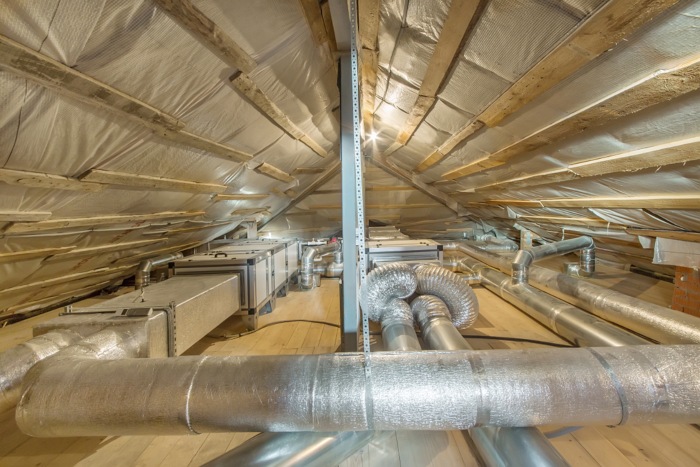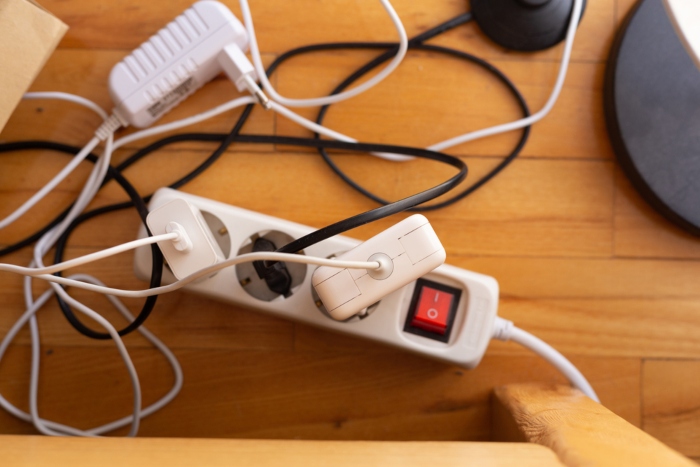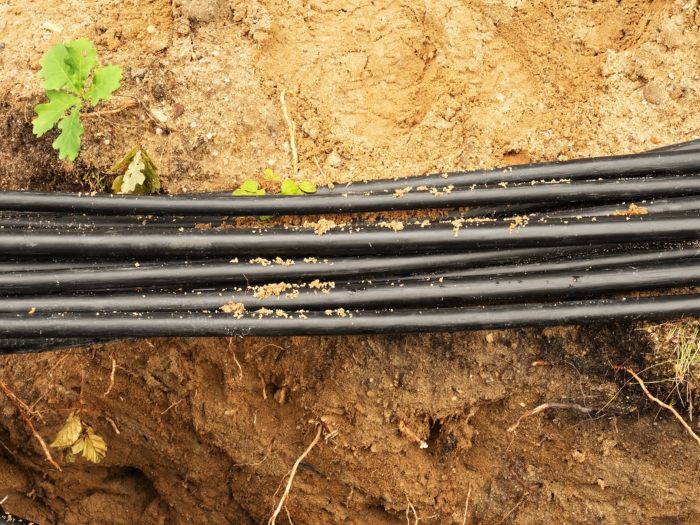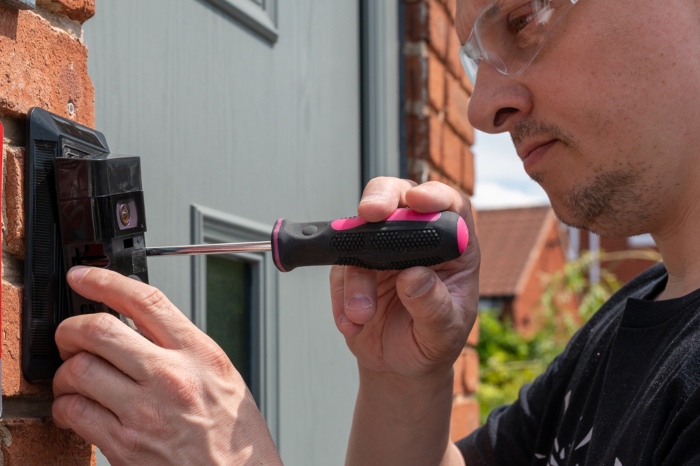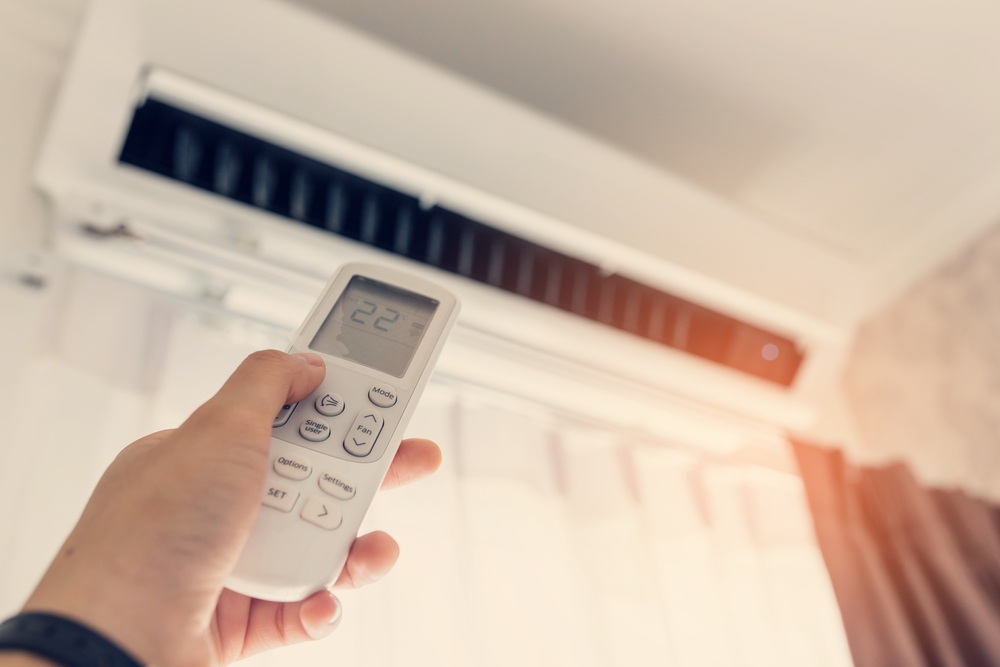
Ductless Vs. Central Air Conditioning
There are so many options when selecting ductless or central air conditioning systems for your home – there’s no right or wrong decision, as each type offers many advantages. Energy efficiency may be the top priority for you. Then it’s worth considering a ductless AC.
Perhaps you want a quiet unit you can barely hear when it’s running. Or, getting rid of maintenance headache costs is on your top list. Whatever your needs, make sure to talk to HVAC pros to select the AC system that works best for your Los Angeles home.
Meanwhile, read an RG Electric article about how ductless AC compares to a central air conditioning system. But first, let’s define the two.
What is Ductless AC, and What Does It Involve?
Have you heard about mini-splits? We bet you have. If so, you should know that a ductless conditioner is often referred to as a split system or multi-split AC. It usually involves two pieces of equipment – an outdoor compressor and condenser to cool the air and an indoor air unit that generates the air across a room. These two get attached through the conduit with power and refrigerant lines within your home’s exterior walls; thus, ducts are not needed for this type of air conditioning.
However, it’s different when it comes to a central air system, also known as ducted.
What is Central AC, and What Does It Involve?
Most homeowners prefer central air conditioning. This is especially true for Southern California with balmy temperatures, where whole-home cooling is a popular option for cooling large spaces. Unlike a ductless system, a central AC employs your home’s duct system to cool the air. As a result, it provides consistent and even temperature throughout all rooms.
Central air conditioning systems operate on a compressor, condenser, and evaporator coil. They absorb and remove heat by converting refrigerant from gas form to liquid and back to gas at a rapid speed. Consequently, they not only produce cool air but also help clean it.
There’s one thermostat that controls central air. It can detect a high temperature in a particular room and send a “command” to start cooling the air.
Now, let’s look at the positive and negative aspects of ductless AC.
Ductless Air Conditioning Strengths
The greatest benefit of ductless AC is its ability to provide a wide range of temperature zoning. For example, each unit is intended to cool or heat the room in which it is located. Other strengths are:
- A more flexible solution than a ducted air conditioner. It can be installed in selected rooms, and additional units can be added at any time.
- Installation is cheaper.
- Better for small houses and single rooms.
Ductless Air Conditioning Drawbacks
Although it might seem that one of the major drawbacks of ductless AC is the initial cost, that isn’t entirely true. It depends on how many multiple units you need and the model you are considering. For example, energy-efficient models will cost you more but reduce your utility bill in the long run. On the other hand, some central air systems are more expensive than others, but the maintenance cost is always higher.
- External and internal boxes are visible and may not provide aesthetic pleasure.
- The indoor unit generates airflow over a short distance, which may be a problem for spacious rooms.
Good Points About Central Air System
Here are some of the major good points about central air conditioning:
- Invisible, hidden behind walls or ceilings.
- Cools or heats the entire house, but each room can be set to its own temperature given that it supports zoning.
- Easier to maintain a constant temperature throughout the house.
- Quieter than a split system. However, you can find modern ductless models that also don’t produce much noise.
Negative Points About Central Air System
Typically, we don’t recommend a central air system for homes that don’t have ductwork. First, the installation can become very complicated, and it will drain your pocket. However, if money isn’t a problem and you don’t bother yourself with the cost of running central AC, it can drastically increase the value of your house.
- More expensive option for installation.
- Impossible to install in houses with insufficient space.
- If you only want to cool one room, you will have to pay extra for electricity to cool the whole house (unless your central AC supports zoning).
Which HVAC System Will Keep You Cozy in Any Weather?
After being told about the pros and cons of both systems, John and Mathew understood the key differences between them and immediately realized which system they wanted to install.
John, dreaming of a universal air conditioning system in his big house, doesn’t really care about the budget but simply wants to be in control. Since John is building a large family house, his choice is a ducted AC. He has recently purchased an apartment with a high ceiling in Los Angeles, so he will get another central air conditioning system for his LA home.
Mathew needs a budget solution. After consulting with HVAC specialists, he realized that a ductless system is an ideal option to feel comfortable in his 757 square feet home.
Interesting Facts About AC
- Modern air conditioning was invented in 1902.
- AC has its own museum in downtown LA.
- AC inventor William Carrier tried to harness humidity to make his four-color printing work without “sweating.” So it was invented for paper, not people.
- Grauman’s Metropolitan theater in downtown LA perhaps was the first cooled by AC.
- In 1976, a bacteria breeding in the cooling tower of a hotel in Philadelphia, Pennsylvania, hosting the American Legion, infected 182 and killed 29 of them.
- The first residential AC installed in 1914 was 7 feet high, 6 feet wide, and 20 feet long.
- Herbert Hoover was the first president to enjoy luxury AC.
- People in Los Angeles consume more energy to power their AC, and because of that, electricity demand is likely to rise by 50% by 2060.
- Until the 1970s, most houses didn’t have air conditioning.
- Arizona, Nevada, Florida, and Texas grew in population due to AC appearance.
If you need advice about a ductless conditioning air system, we are here to help.


 Call (323) 5215131
Call (323) 5215131

